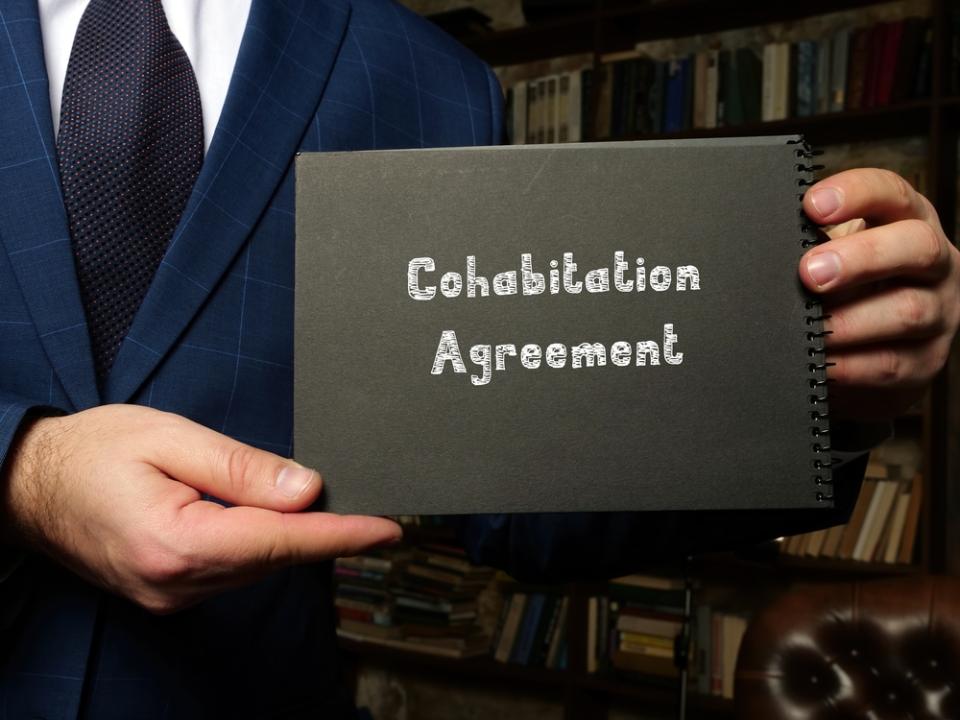Cohabitation without marriage is becoming more common in the U.S. Buying a home with your partner may make financial sense, but it can come with some legal complications. While most couples do not go into a relationship planning for when it will end, it can happen, and sharing everything may lead to some unintended consequences.
For example, gifting your partner a valued object can incur gift taxes and a loss of control over your property once the gift is accepted. It is essential to understand gifts and joint ownership from a legal perspective before making a decision you may regret.
Cohabitation Trends in the U.S.
In the United States, the percentage of people aged eighteen to forty-four who have lived with an unmarried partner at some point in their lifetime (59%) is higher than the percentage of people who have been married (50%).
While the percentage of married U.S. adults has declined since 2002, the percentage of people living with an unmarried partner has more than doubled.
Over the last twenty years, the number of unmarried partners cohabitating has almost tripled from 6 million to 17 million. This is 7% of the total adult population.
Times are changing, and people in the U.S. are becoming more accepting of unmarried couples cohabitating, according to Pew Research Center. Car insurance companies are accommodating this trend by extending policies to unmarried couples.
Most insurers today allow a significant other to be added to a car insurance policy. Of course, if your partner has a poor driving record or they get into an accident while covered under your shared policy, you can suffer from a rate increase.
On the other hand, if they are an excellent driver, you can save a lot of money on premiums.
Joint Ownership with Your Significant Other
According to the National Association of Realtors, about 9% of homebuyers in the U.S. in 2020 were not married. As the number of unmarried couples has increased, the number buying homes together has also increased.
When two people commit to each other, it only makes sense that they purchase their home together. However, while this makes financial sense, a jointly owned property presents legal risks and obligations to each co-owner. These same risks can also arise if one person owns the property and adds their partner to the title.
Consider this:
- Adding another person to the title of a property can trigger gift tax consequences in some states, such as those in which the joint owner does not have the right to sever their interest in the property. In these cases, the gift is typically assigned a value of half of the property value.
- If a gift’s value exceeds the annual gift exclusion amount for that year ($16,000 in 2022), the person giving the gift will need to file a gift tax return.
- The value of the gift will also need to be deducted from the giver’s lifetime exclusion amount upon their death. This value was $12.06 million in 2022, so it may be unlikely that any gift tax will be owed.
- Once a joint owner is added to the property, the property could be immediately susceptible to the joint owner’s creditors. If your partner has creditors, their creditors may go after your jointly owned property to satisfy your partner’s debts.
- Unmarried partners purchasing a home together could automatically inherit each other’s shares in the property, depending on how the property is titled. This could occur if the property is deeded to the new owners as joint tenants with the right of survivorship. You could avoid survivorship rights by using one of these alternatives:
- Having the owners hold the property as tenants in common
- Having a trust own the property. The nonowner partner could be given the right to occupy the property for a designated period of time.
- Creating a limited liability company to own the property and giving the surviving owner a retained right of occupancy.
You could also create a cohabitation property agreement that protects each partner’s property interests. Your agreement could include a dispute resolution process, an exit strategy, a buyout agreement, and a plan for dividing all accounts and properties if the relationship ends.
Unmarried Couples and Gifts
In contract law, a gift is something that is transferred from one person to another for a nonbusiness reason and without compensation.
These conditions must be met to make a gift valid:
- The giver intends it as a gift.
- The gift is actually delivered to the recipient by the giver.
- The recipient accepts the gift from the giver.
If a gift meets these requirements, it is recognized as a valid gift, and the offer cannot be rescinded. Once a gift is successfully made, the giver loses all control over the money or property they have gifted to the recipient.
The legal definition of a gift must be considered when making large gifts. For example, gifting your partner with joint property ownership can have significant consequences if you break up. If you add your partner to the title of your house, they legally own half the house. If you break up and they don’t want to return their share to you, you would have to:
- Buy it back from them
- Let them buy your half from you
- Let them sell their share to another party
They could also petition the court to perform a forced sale of the property, divide the proceeds between the partners, or ask the court to partition the property.
Before giving a gift of joint tenancy, consider each of these potential outcomes.
An engagement ring is one potential exception to the legal considerations of a gift. An engagement ring is a conditional gift. It is given with the expectation that a future event, a marriage, will occur. If the wedding does not happen, the giver may have the right to get the ring back. However, courts make these decisions based on the specifics of a broken engagement and, therefore, may have different views on this issue.
Ask questions
Unmarried couples do not currently enjoy the legal protections that married couples do. Before making large gifts or jointly owning a property, talk with your lawyer to learn how to protect yourself.
If you have questions about how to gift property to your significant other, schedule a call with us at 855.631.3457 to learn more about how to protect those most important to you.








